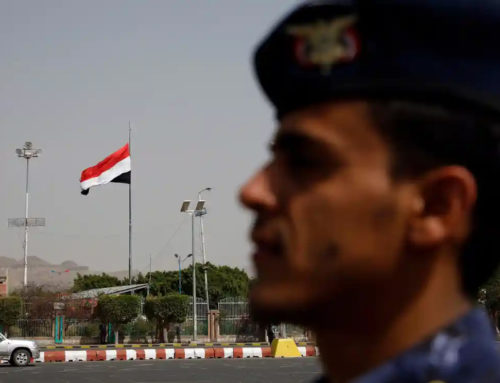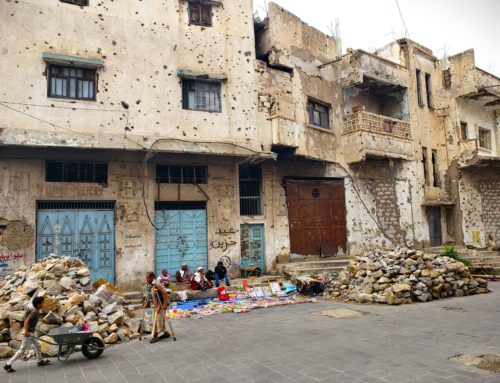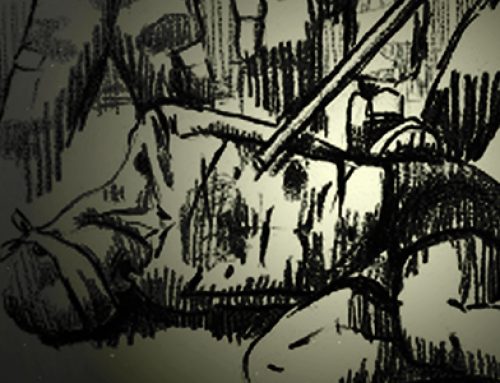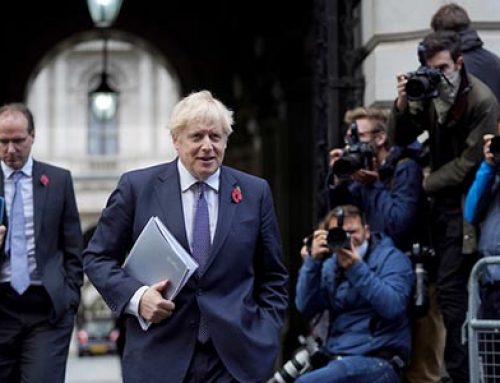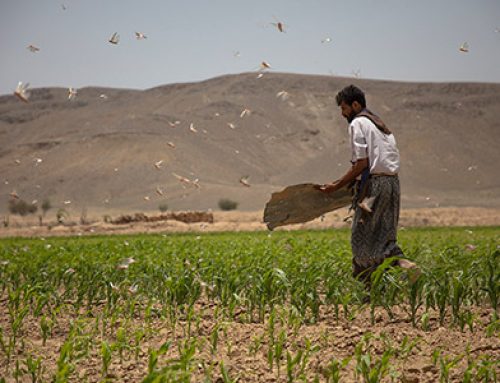Opportunities and Challenges to Establish Accountability for War Crimes Committed in Yemen and the Arab Region
Oct 24,2018
Abdulrasheed Al Faqih
Executive Director of Mwatana Organization for Human Rights
Human Rights Researcher
The murder of the Saudi journalist and the Washington Post columnist Jamal Khashoggi dramatically increased the attention to the war crimes in Yemen putting forward multiple questions about impunity and the importance of accountability. Including Yemen in the narrative in the Khashoggi case, the Washington Post published an article suggesting that ” the best place to start the U.S. readjustment is where Mohammed bin Salman himself began: with the disastrous war in Yemen
In its first report, submitted by the High Commissioner for Human Rights to the thirty-ninth session of the Human Rights Council, held from September 10 to 28, 2018, the group of eminent experts, established by virtue of the resolution of the Human Rights Council, on September 29, 2017, highlighted in one of its conclusions, the need to establish an independent tribunal. This constituted the first reference made in a human rights report at this level to a procedural step to achieve accountability for war crimes in Yemen.
Human rights actors are exerting tremendous efforts in order to put an end to the phenomenon of impunity. Although this work resembles engraving on a wall built from accounts of corrupt international and regional interests and alliances, the human rights movement is tirelessly working to find loopholes for justice and accountability for war crimes committed by all parties in Yemen, as well as other parties in the region. The human rights movement recognizes that many political, legal and endogenous challenges converge with the wall of impunity, but it continues to exert its efforts to reduce the “safe havens” of those responsible for perpetrating human rights violations.
In light of the increasing conflicts that have led to severe humanitarian transformations and crises in the MENA region, such as in Yemen, Syria, Libya, Iraq, Syria and Egypt, and in light of the deterioration of human rights conditions globally with the rise of populist administrations and overlapping responsibilities between direct violators from small States and armed groups, and from their allies and supporters from the administrations and governments of major Powers, and with the persistent policy of impunity to the point that it has become enshrined, the human rights and justice movement itself is faced with an existential test beset by pressing questions about the impact of its struggle and its usefulness. Questions have also been raised about how this movement aims at maintaining the confidence of victims in its work mechanisms, about the goals, demands and slogans it has adopted and about the extent of success of the hegemonic systems and its allies have had in reducing the role and effectiveness of human rights organizations, and framing their movement within channels controlled by systems, governments, alliances and departments responsible for human rights violations and humanitarian crises industry.
Despite this gloomy picture of the current global situation under which the human rights movement operates, there are real opportunities to enforce justice and accountability, and to create encouraging success stories. In the most recent example, on June 8th, 2018, the German prosecutor issued an international arrest warrant against the Director General of Syrian Air Intelligence, Major General Jamil Hassan for committing “crimes against humanity” between 2011 and 2013. Accountability opportunities can also be traced through the Yemen model and some of its supporting characteristics. Unlike in other crises, Yemen has not been completely plunged into the chaos of extremist groups whose brutal behavior, projects and practices are clouding human rights violations, their perpetrators and victims, as well as the threat and danger posed by these groups, within the framework of “terror”, on global security. Traditional structures in Yemen, such tribes and political militia, have prevented extremist groups from stepping in and filling the vacuum left by the collapse of the state institutions.
In the case of Yemen, access to the facts and victims of violations and the prosecution of perpetrators are still possible through independent professional investigations. Objective and balanced pressure exercised by the international community and the various civil mechanisms on the parties can still make a real and tangible difference that reduces violations and the number of victims. The parties to the war in Yemen, however diverse and different, are still mostly seeking to secure their political positions in the future. Therefore, they are keen to raise political banners and to limit the impact of their violations on their political future, particularly in the case of objective and accurate exerted efforts documenting violations and resolving them through effective mechanisms and means. There is support for this hypothesis even if the parties accused of committing violations show otherwise in their immediate reactions; they interact extensively with every human action that reveals some of these violations, even if their interaction represents massive campaigns to deny the content of violations and to attack the human rights bodies that reveal them. Thus, the impact of positive human rights efforts, depending on accumulation, affects the behavior of the parties, public awareness and the human rights environment. This effect is an incentive to continue exerting efforts to combat human rights violations and to expand and consolidate them for the benefit of victims and their causes.
The various civil mechanisms, through all their work in this context, seek a moral and ethical trial that leads to the stigmatization and denunciation of each party for its abhorrent acts and behavior against vulnerable victims, and for using its power, authority or influence in abnormal ways and in an exceptional context.
Through these mechanisms and accurate field research, the human rights movement attempts to take advantage of the communications revolution to present the realities of war, its atrocities and tragedies, and to identify the perpetrators. These researches are reflected in reports, data, articles, news, blogs, photos and videos, and other human rights publications, which are broadcast through various media and communications outlets, social networking platforms and networks. In addition, advocacy and lobbying work and activities are being implemented to gain support. The attention of public opinion, policy makers, lawmakers and supporting forces is thus directed to justice and human rights issues, tragedies, accompanying violations and crimes resulting from the war. These efforts reveal violations, which are matched by “public relations campaigns” that serve the interests of the violators, with their huge potentials, multiple bribes, means, platforms, networks and electronic armies. However, consistent positive human rights work can create a loophole for accountability if it continues to dig into the wall of impunity.
Through various civil mechanisms, the practices, violations and infringements committed by parties, authorities and groups are faced with their claims, slogans and allegations, through which they try to reflect people’s aspirations and hopes. Hundreds of thousands of people have followed groups or authorities who, in their march, have raised banners to preserve the dignity and interests of the people and promised to deliver them from evil. These people would then find themselves later, in front of a new conqueror with a new name, violating their dignity, rights and interests and preserving the qualities and practices of their predecessor. This phenomenon is one of the paradoxes of the crises, conflicts and transformations of the region, which are characterized by a periodic exchange of the positions of the oppressor and the oppressed.
In light of the collapse of the local justice and judicial systems in conflict-ridden countries, their inefficiency in natural conditions, as well as in exceptional situations, and their lack of jurisdiction over the patterns and realities of human rights violations in armed conflicts falling within the mandate of international humanitarian law – the rules of engagement, the legal status, the leadership and the officials of the violators, in addition to the inability of the collapsed judicial system to hold the perpetrators accountable and prosecute them, establishing international judicial mechanisms, with a universal jurisdiction and an objective jurisdiction specialized in crimes and the grave violations not covered by local laws’ limited jurisdiction, is needed more than ever.
One of the most important mechanisms established to secure the global need for accountability for the most serious crimes is the “International Criminal Court”, established under the Rome Statute. The ICC was established with a view to put an end to the impunity of the perpetrators of serious crimes. Its Statute defined the crimes covered by the jurisdiction of the Court as genocide, crimes against humanity, war crimes and crimes of aggression.
The Court can only consider cases of violations falling within the scope of the States Parties thereto, which are signatories to its Statute, or in case a State which is not a party to it submits a request to the Court to look into crimes committed within its scope or when the Security Council transfers a crime case to it, even if the crimes are committed in a State that is not party to the Court.
Unfortunately for the citizens of the countries of the Middle East and North Africa, which are torn with conflicts, their governments, with the exception of Jordan, refused to sign the ICC Statute and thus prevented the Court from considering the atrocities that affected tens of thousands of victims in these countries.
The difficulty of the matter is compounded by the conflict between regional and international interlocutors in the corridors of the Security Council, which has the authority to refer crime files of non-signatory countries to the court system. This conflict leads to the disruption of the possibility of the Council to objectively refer files of violations of human rights in many countries, and thus it relinquishes the responsibilities entrusted to it, and acquiesces to the accounts of interests, alliances and political negotiations.
Moreover, since its establishment, the ICC has been faced with extensive efforts to undermine its experience and objectives aimed at creating an international justice mechanism to end the policy of impunity. These efforts have been led mainly by the US administration and the Israeli government. Since the establishment of the court, the two governments have repeatedly declared their rejection of it, which is an attempt to protect their officials who are involved in grave violations in a number of wars from any accountability, prosecution or condemnation, as justice would demand.
The International Criminal Court has achieved a limited number of successes, ranging from the trial of Thomas Lubanga (Democratic Republic of Congo), the first person ever convicted by the International Criminal Court for the recruitment and use of children in armed conflict, to the investigation of war crimes in Uganda, Sudan, the Central African Republic, Congo and Libya. Nevertheless, the court continues to face serious difficulties hindering its work and subjecting it to existential tests to prove its effectiveness, relevance and seriousness. Tens of thousands of victims are still waiting to ensure their need for justice and equity in several regions in the world. Furthermore, the Court must overcome all the problems that prevent it from fulfilling its mission and function: to prosecute and hold accountable those responsible for violations of human rights.
Parallel to the experience of the International Criminal Court, regional and international experiences have emerged that have made important breakthroughs in favor of the values of justice and accountability. The African Special Court, in Dakar, Senegal, was established with the support of the African Union. One of the most prominent success stories of the African Court was the trial of former dictator in Chad, Hissène Habré, who was sentenced to life imprisonment for crimes against humanity and torture. The trial was the result of 25 years of human rights efforts.
Another important experience is the “International Criminal Tribunal for the Former Yugoslavia”, in The Hague, the Netherlands. This court was established by UN Security Council Resolution 823 and on November 22nd, 2017, it issued a historicverdict to convict Ratko Mladić, Chief of Staff of the Army of Republika Srpska from 1992 to 1996. Mladić was known as the “Bosnian butcher” and was convicted by the Tribunal of 10 charges out of 11 charges that included war crimes, crimes against humanity and genocide, and sentenced him to life imprisonment.
Similarly, the “International Criminal Tribunal for Rwanda” was established by virtue of Security Council resolution 955. On September 2nd, 1998, the Tribunal issued its verdict condemning Jean-Paul Akayesu, the former mayor of the Rwandan town of Taba, for his involvement in genocide and crimes against humanity. He was sentenced to life imprisonment.
In recent years, as the atrocities of numerous conflicts erupting in the region have intensified, many human rights groups, with tens of thousands of victims, place high hopes on European courts, where adopted legislation and policies are committed to human rights. In European courts, universal jurisdiction is compatible with the obligations imposed by international treaties on the States parties thereto. Universal jurisdiction could be used to prosecute those responsible for war crimes committed in the context of an international armed conflict. It obligates signatory States to extradite or investigate any suspect on their territory, and customary international law allows States to use universal jurisdiction to prosecute those responsible for war crimes committed in non-international armed conflicts, crimes against humanity and genocide.
In the enforcement of these obligations, some European countries, such as Germany, France and Sweden, have recently begun to use universal jurisdiction laws to investigate allegations of war crimes, crimes against humanity and genocide in Syria and Iraq. For example, a court in Stockholm in 2015 convicted Syrian citizen Muhannad al-Darubi of committing torture as a war crime, sentenced him to five years in prison, and then increased his sentence to eight years after retrial. This was the first European trial of war crimes committed in Syria. Furthermore, in March 2016, the Swedish police arrested another member of an armed Syrian group who arrived in Sweden in 2013 on charges of war crimes. In Germany, the police said it launched 13 investigations into war-related cases in Syria. These extensive investigations, in which there are no specific suspects, aim to gather evidence available in Germany to facilitate future criminal trials before German courts or other courts. In a similar action in France, the Public Prosecutor’s Office of the Special War Crimes Unit in Paris opened a preliminary investigation into atrocities committed by the Syrian regime in September 2015. Other allegations and cases of war crimes in Syria have also been brought before the judicial authorities in Norway, the Netherlands, Switzerland and Finland. These cases have supported vigorous human rights efforts to reach effective trials that bring justice to the victims and bring new victories to justice and accountability.
Although the scope and number of European prosecutions for serious crimes and violations are limited, they constitute important steps to move the wheel of justice and open more windows of hope for victims of these horrendous violations.
In the case of Yemen, the European Center for Constitutional and Human Rights (ECCHR) in Germany, in partnership with Mwatana Organization for Human Rights in Yemen and the Italian disarmament network in Italy, filed on April 17th, 2018, a criminal complaint with the Italian prosecutor’s office in Rome. The aim of the complaint was to investigate the criminal liability of the Italian Unit for the Authorizations of Armament Materials (UAMA), which is the authority authorized to allow the export of Italian arms, and similarly to investigate the managers of the Italian arms manufacturer RWM Italia SpA for exporting weapons to countries participating in the Saudi-led military coalition, which is involved in the conflict in Yemen. The basis for calling for such an investigation is the use of such weapons by the Arab Coalition in the killing and wounding of civilians and the destruction of civilian objects, as part of extensive violations of international human rights law.
In Britain, the Court of Appeal announced on Friday, May 4th, 2018, the acceptance of an appeal submitted by a civil coalition against the sale of arms. The Coalition had already filed a legal action to stop the supply of arms to Saudi Arabia because of their use in killing and wounding civilians in Yemen. The Supreme Court had earlier rejected the same case on July 10th, 2017. It concluded in its verdict that the granting of arms export licenses from the United Kingdom to Saudi Arabia did not violate the law.
Various human rights organizations and bodies are seeking to submit further cases in Europe on war crimes in Yemen. These efforts are aimed at obtaining convictions that open the doors of accountability for grave violations that have created what the United Nations organizations and humanitarian institutions have described as the world’s greatest humanitarian crisis.
The demand of victims and human rights workers for the establishment of international criminal tribunals for atrocities committed in Syria, Libya, Iraq and Yemen will continue, similarly to the successful experiences in Africa and the former Yugoslavia. If this requirement is met, it will meet the urgent need for effective frameworks with a comprehensive legal and substantive mandate that responds to the magnitude of the atrocities suffered by tens of thousands of civilians and at the same time it will ensure that justice is served, will put an end to the policy of impunity, and will pursue and prosecute those responsible for perpetrating such atrocities.
In order not to turn human rights organizations into mere technical bodies that count victims and that are consumed by rusty and defective bureaucratic channels, and in order not to limit their role to a commentator on the sidelines of events, they should have institutional readiness for strategic action for accountability and justice. They must work with patience, in a cumulative framework, and gather success stories of victims and issues. But before that, they must enhance the efficiency, quality and accuracy of the work and techniques of investigation and documentation, develop mechanisms of work at different levels, and create effective and impactful alternatives. This series of requirements does not stop at this point, but should also include the planning of a global collective action by the leaders of the human rights movement, institutions and individuals, to counter the non-compliance with human rights obligations, to confront this flood of violations and crimes and to break the impunity guarded by the international community.
In addition, the human rights movement must strive to effectively target local communities in the major countries to hold their governments accountable. Human rights violations are not an external matter; they are an internal affair linked to the values of these societies and the responsibility of their governments for the tragedies of other societies and their participation in violations of international humanitarian and human rights law. The whole world must see how these governments deal within their borders with standards and values that completely contradict the norms and values they adopt in their foreign policies when dealing with other societies; they enshrine the rule of law, human rights and the values of democracy and justice within their own territory, while they enshrine in other societies the policies of chaos and impunity, enhance the means of force and coercion, and support dictatorships and their corruption.

